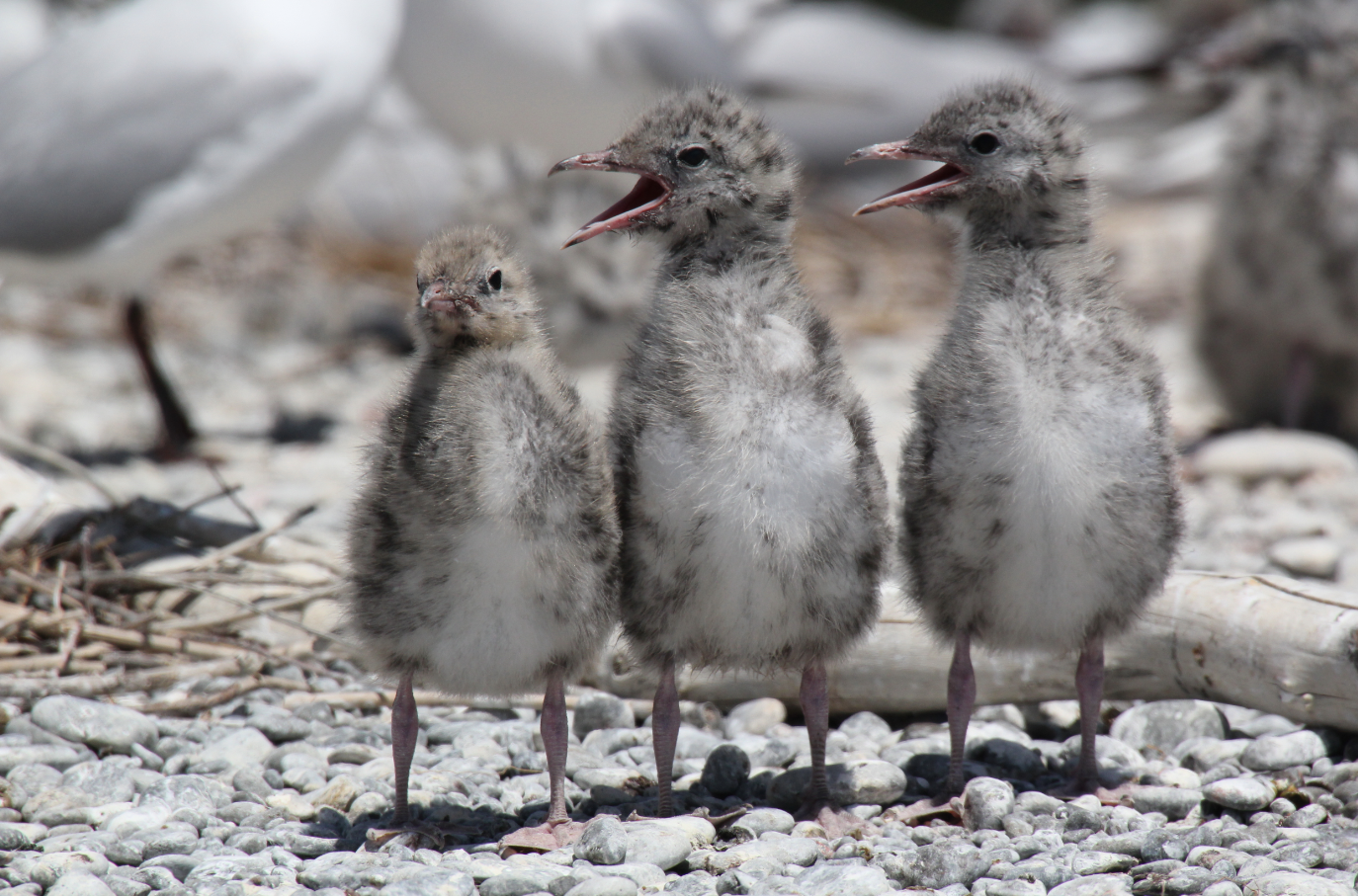Give black-billed gulls a wide berth

Napierites
have a lovely unexpected gift for the end of spring in the
form of a nesting black-billed gull colony.
The chicks
are really vulnerable because when the parents get food or
when they’re threatened they fly up and leave the eggs and
chicks exposed to the cold, hot, and other threats.
The colony of gulls, the world’s most threatened species of gull, has popped up on Pandora spit in the estuary.
Hawke’s Bay Regional Council Terrestrial Ecologist Keiko Hashiba says black billed gulls have declined massively since the 1970s and the numbers are still going down.
“It’s awesome to see the rarest gull in the world setting up a home in our backyard, our Ahuriri estuary. There are over 200 birds in the colony, but despite this large number they are sitting ducks,” says Keiko.
“They’re really vulnerable because when the parents get food or when they’re threatened they fly up and leave the eggs and chicks exposed to the cold, hot, and other threats. Because of this it’s important to keep a respectful and very safe distance.”
Department of Conservation (DoC) Senior Ranger Community, Chris Wootton says black-billed gulls now have a threat status of Nationally Critical, which is worse than the kiwi and same as the kākāpō.
“Key threats to these gulls include introduced predators and human disturbance. People can help black-billed gulls to survive by leaving nesting colonies alone during the breeding season - between September and January - and keeping dogs on leads. Dogs can kill chicks and destroy nests so we’re urging dog owners to stay away from the area,” says Chris.
Disturbing protected birds
and destroying nests are offences under the Wildlife Act and
can result in imprisonment of up to six months or a fine of
$100,000.
“The estuary is a wildlife refuge, so is a
really special place for species like these gulls. We’re
asking the community to be respectful of the birds as they
raise their families and keep clear,” he
says.
ends


 Gordon Campbell: On Justin Trudeau’s Demise, In A Global Context
Gordon Campbell: On Justin Trudeau’s Demise, In A Global Context Melanie Nelson: Act Now On The Proposed Regulatory Standards Bill
Melanie Nelson: Act Now On The Proposed Regulatory Standards Bill Climate Justice Taranaki: The Bill For Individualism, Corporations And Neoliberalism
Climate Justice Taranaki: The Bill For Individualism, Corporations And Neoliberalism Ministry For Culture & Heritage: New Zealand Flag Half-Masting To Mark The Funeral Of Senior Sergeant Lyn Fleming, NZ Police
Ministry For Culture & Heritage: New Zealand Flag Half-Masting To Mark The Funeral Of Senior Sergeant Lyn Fleming, NZ Police Child Poverty Action Group: Anti-poverty Groups Say Amendments To Social Security Act Will Remove Job Seekers’ Human Rights
Child Poverty Action Group: Anti-poverty Groups Say Amendments To Social Security Act Will Remove Job Seekers’ Human Rights Justice Committee: Justice Committee Reopens Submissions For Principles Of The Treaty Of Waitangi Bill To Tuesday 14 January
Justice Committee: Justice Committee Reopens Submissions For Principles Of The Treaty Of Waitangi Bill To Tuesday 14 January NZCAST: Survivors Of Abuse In Care Left Waiting - Urgent Action Needed Following Apology
NZCAST: Survivors Of Abuse In Care Left Waiting - Urgent Action Needed Following Apology


